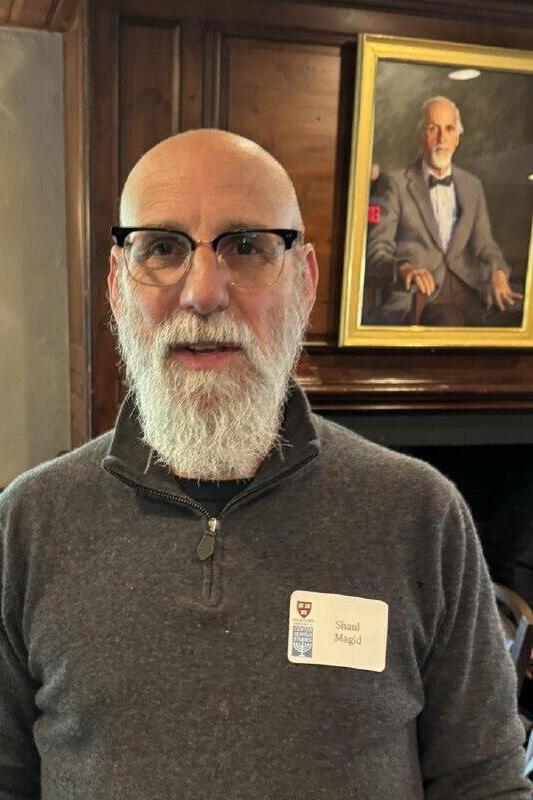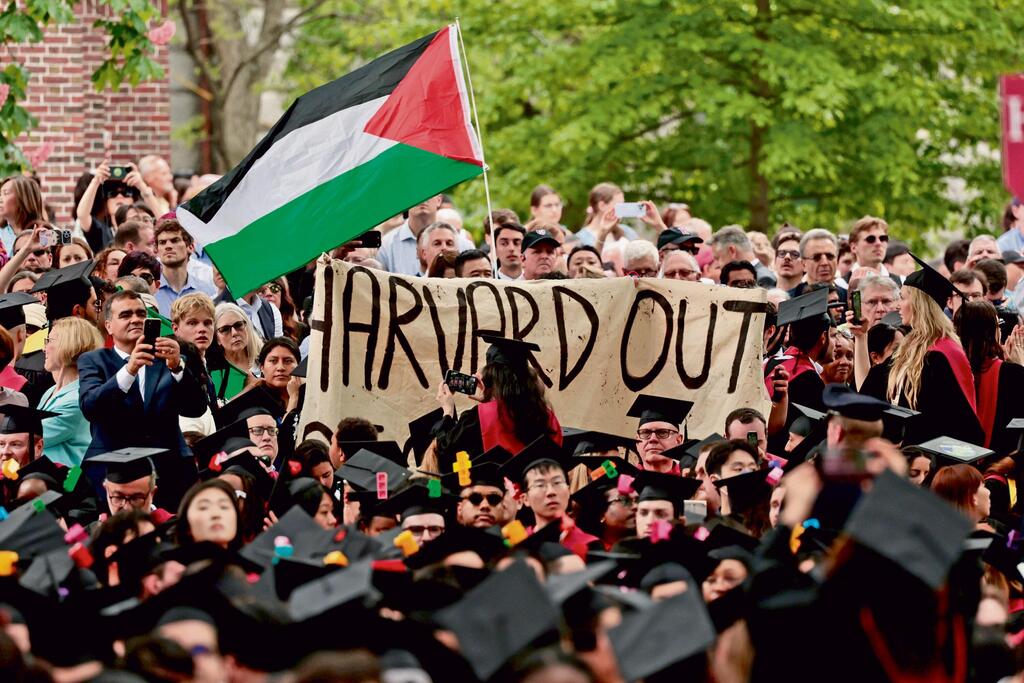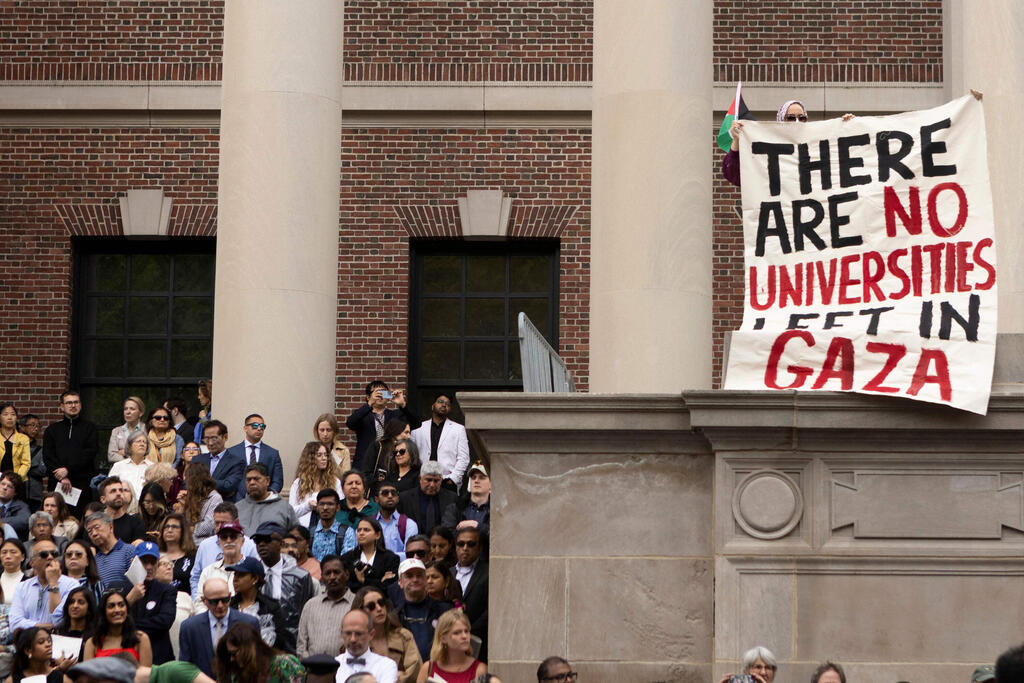Amid a growing dispute between Harvard University and the Trump administration over claims of insufficient action against antisemitism, the university made a move likely to intensify criticism: Professor Shaul Magid, a prominent Jewish thinker associated with “Counter-Zionism”—a spiritual alternative to Zionism—was appointed as the first tenured professor of modern Judaism at the university's Divinity School.
The prestigious five-year appointment, with an option to extend, was presented as a commitment to expanding Jewish studies at Harvard. However, it has drawn sharp criticism from members of the Jewish community not only stateside, but within Israel as well.
According to Harvard, the appointment is actually part of its effort to combat antisemitism. A task force established after the events of October 7 found that "politicized teaching" in four faculties “normalizes antisemitism” and creates a sense of exclusion among Jewish and Israeli students. The report noted, among other things, that some professors blame Jews for the Nakba, link them to white supremacy in the U.S., and promote “de-Zionization” ideologies that portray Israel as a colonial project.
Magid, 66, was raised secular in New York, immigrated to Israel in his 20s, studied in ultra-Orthodox yeshivas in Jerusalem, and was ordained as a rabbi in 1984. He later distanced himself from Orthodoxy but remained deeply engaged in Jewish spiritual life. He has taught at leading U.S. universities, was a senior fellow at the Shalom Hartman Institute in New York, and has authored eight books and hundreds of articles—including a controversial biography of Rabbi Meir Kahane.
At the heart of Magid’s work is a critique of Zionism, which he sees as a “project of power” that has distanced Judaism from its ethical roots.
While post-Zionism seeks to reform or critique Zionism from within, and anti-Zionism rejects Israel’s legitimacy altogether, Magid’s “Counter-Zionism” aims to replace it with a completely different Jewish identity—one rooted in diaspora ethics rather than sovereign nationalism.
He views Israel as “a project of cultural and political erasure” that fosters Jewish supremacy, Palestinian control and civic inequality. “It’s not even that the Arab is perceived as an enemy,” he wrote. “It’s more that he’s not meant to exist at all—as if he simply doesn’t.”
Instead of a Jewish state, Magid proposes a return to exile as a universal framework for a moral and critical Judaism. In his view, exile is not a curse but a blessing: a condition that nurtures cultural depth, critical thought, and a rejection of nationalism. “Zionism has run its course,” he wrote in his latest book, The Necessity of Exile, “and it can now be set aside—like colonialism and other chauvinistic, ethnocentric doctrines of the past.” He supports a binational state for both peoples, but sees it not as a technical solution to the conflict, but as a fundamental reimagining of Jewish identity.
Harvard’s Divinity School introduced Magid as “a groundbreaking scholar,” but reactions off campus were more mixed. Rabbi Dr. David Wolpe, a former visiting scholar at Harvard and a member of its antisemitism advisory board, expressed concern: “I respect Magid as a scholar and a person,” he tweeted, “but I fundamentally disagree with him on Israel. His views are fringe, and it’s unfortunate the university didn’t appoint someone who represents the mainstream Jewish perspective.”
Wolpe resigned from his Harvard role in late 2023, citing the university’s adoption of ideology that portrays Jews as oppressors. He said the academic environment had become hostile to pro-Israel Jewish voices.
Magid also faced backlash after the October 7 attacks. “I don’t justify massacre,” he wrote, “but I also don’t accept treating it as if it occurred in a vacuum. Decades of humiliation, control, and death—of men, women, and children—must be part of the mourning equation.” He acknowledged that some campus protests cross into antisemitism, but argued they are not inherently so: “That doesn’t mean all the protests are pro-Hamas or antisemitic by definition.”
Get the Ynetnews app on your smartphone: Google Play: https://bit.ly/4eJ37pE | Apple App Store: https://bit.ly/3ZL7iNv
Magid lived in Israel for a decade, served in the IDF, and once considered settling in Gush Katif. He described his encounter with the settlements as a turning point in his thinking about Zionism: “Everything was pastoral and beautiful,” he wrote, “but when we heard the call to prayer from the muezzin and saw the carts from Khan Younis, I realized we weren’t really seeing the Palestinians. They were background.” He describes love of the land as “romantic colonialism,” in which Palestinians are part of the scenery—“like trees and hills, not people who live among us.”
Magid rejects the idea that his appointment was meant to appease Harvard’s critics: “The claim that more pro-Zionist hires are needed is ridiculous,” he said. “If you want to hire a scholar—hire the best person for the job.”





